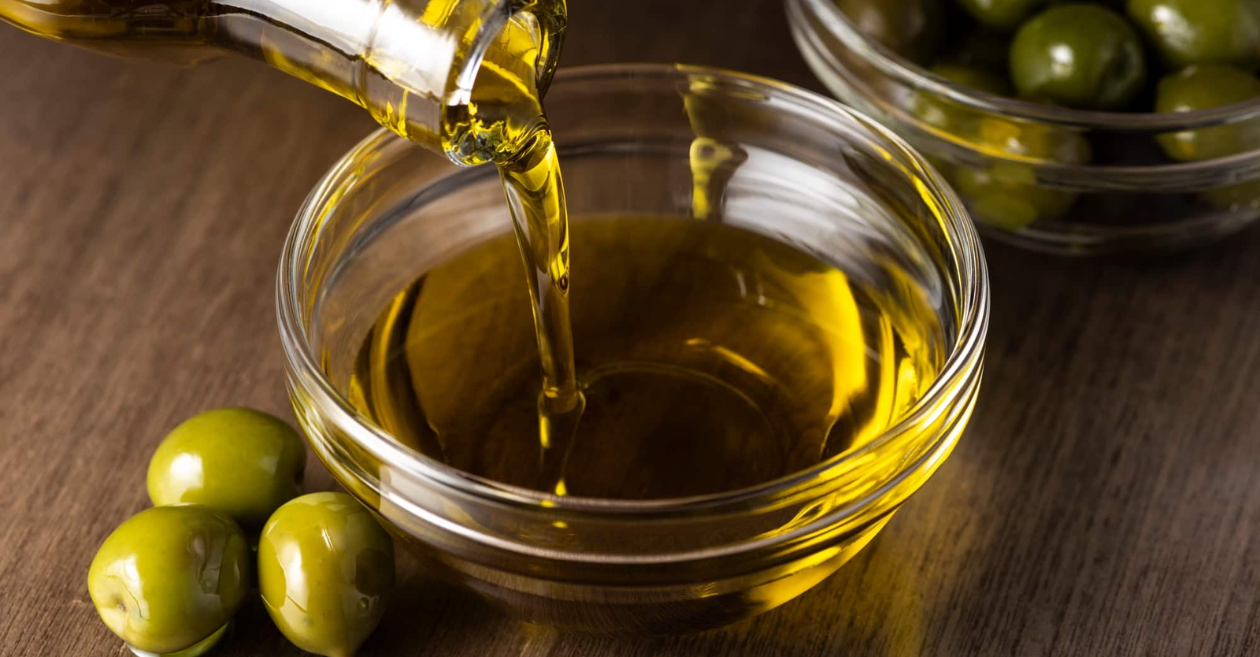


In the kitchen, the battle for the healthiest cooking oil has raged on, with soybean oil and olive oil taking center stage. To simplify this culinary clash, let's unravel the details. In one corner, we have soybean oil, and in the other, the renowned olive oil. Delve into this oil war to make an informed choice for your kitchen – it's time to discover which oil reigns supreme for your culinary adventures.
High in polyunsaturated fats, specifically omega-6 fatty acids.
Contains vitamin E, a powerful antioxidant.
Rich in linoleic acid, which supports heart health.
Abundant in monounsaturated fats, particularly oleic acid.
Packed with antioxidants, including vitamin E and polyphenols.
Known for potential anti-inflammatory properties.
Boasts a higher smoke point (around 450°F), making it suitable for high-heat cooking methods like frying.
Versatile for various cooking techniques due to its stability at higher temperatures.
Moderate to low smoke point (around 375°F for extra virgin olive oil).
Best suited for low to medium-heat cooking, salad dressings, and drizzling over finished dishes.
| Cooking Oil | Smoke Point |
| Soybean Oil | 450°F |
| Olive Oil (EVOO) | 375°F |
Contains plant sterols that may help lower LDL (bad) cholesterol levels.
Omega-6 fatty acids support cardiovascular health.
Linked to improved heart health, attributed to its high monounsaturated fat content.
May help lower LDL cholesterol and increase HDL (good) cholesterol.
Higher in calories compared to olive oil.
Lower in saturated fats but higher in polyunsaturated fats.
Moderation is key due to its calorie density.
Predominantly monounsaturated fats with a lower overall fat content compared to soybean oil.
| Nutrient | Soybean Oil | Olive Oil (EVOO) |
| Calories | 120 | 119 |
| Total Fat | 14g | 14g |
| Saturated Fat | 2g | 2g |
| Monounsaturated Fat | 4g | 10g |
| Polyunsaturated Fat | 7g | 1.5g |
Mild flavor that doesn't overpower dishes.
Ideal for deep frying, sautéing, and baking.
Distinctive, rich flavor, varying based on the type (extra virgin, virgin, or regular).
Best used for dressings, drizzling, and low to medium-heat cooking.
While both oils bring unique strengths to the table, the choice between soybean oil and olive oil ultimately depends on your culinary preferences and health goals. If you're aiming for a versatile, high-heat cooking companion, soybean oil might be your go-to. However, if you prioritize heart health and enjoy the rich, distinct flavor of olive oil, it could be the perfect match for your kitchen. In the end, moderation is key, and understanding the nuances of each oil empowers you to make informed decisions for a healthier and more flavorful culinary experience. So, whether you're sautéing, frying, or drizzling, choose wisely, and let the flavors speak for themselves in your kitchen adventures.
Olive oil is renowned for its heart-healthy monounsaturated fats, while soybean oil contains omega-6 fatty acids supporting cardiovascular well-being.
Absolutely! With a high smoke point of 450°F, soybean oil is perfect for frying and other high-temperature cooking methods.
Olive oil's abundance of monounsaturated fats, antioxidants, and potential cholesterol-lowering benefits make it a healthy choice when used in moderation.
While soybean oil is higher in polyunsaturated fats, olive oil boasts more monounsaturated fats and lower overall fat content.
Soybean oil, with its neutral taste, is an excellent choice for those who prefer an oil that won't overpower the flavors of their dishes.

Looking to shed some extra pounds? Op

Alzheimer's is like an unwanted visit

In the expansive realm of healthcare,

Disease X is a mysterious term in the

Anxiety is a feeling of fear, dread,

In the realm of health, few challenge
Trash to treasure: How Google thinks
Spring Fashion Show at the University
Matter of Impact: April updates from
Android Enterprise security delivers
We are not gonna make spamming
Copyright By@TheWebTrends - 2023
BACK TO TOP